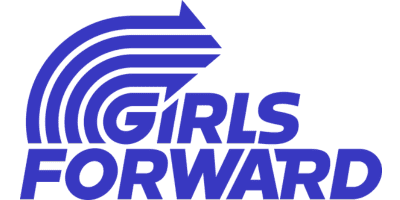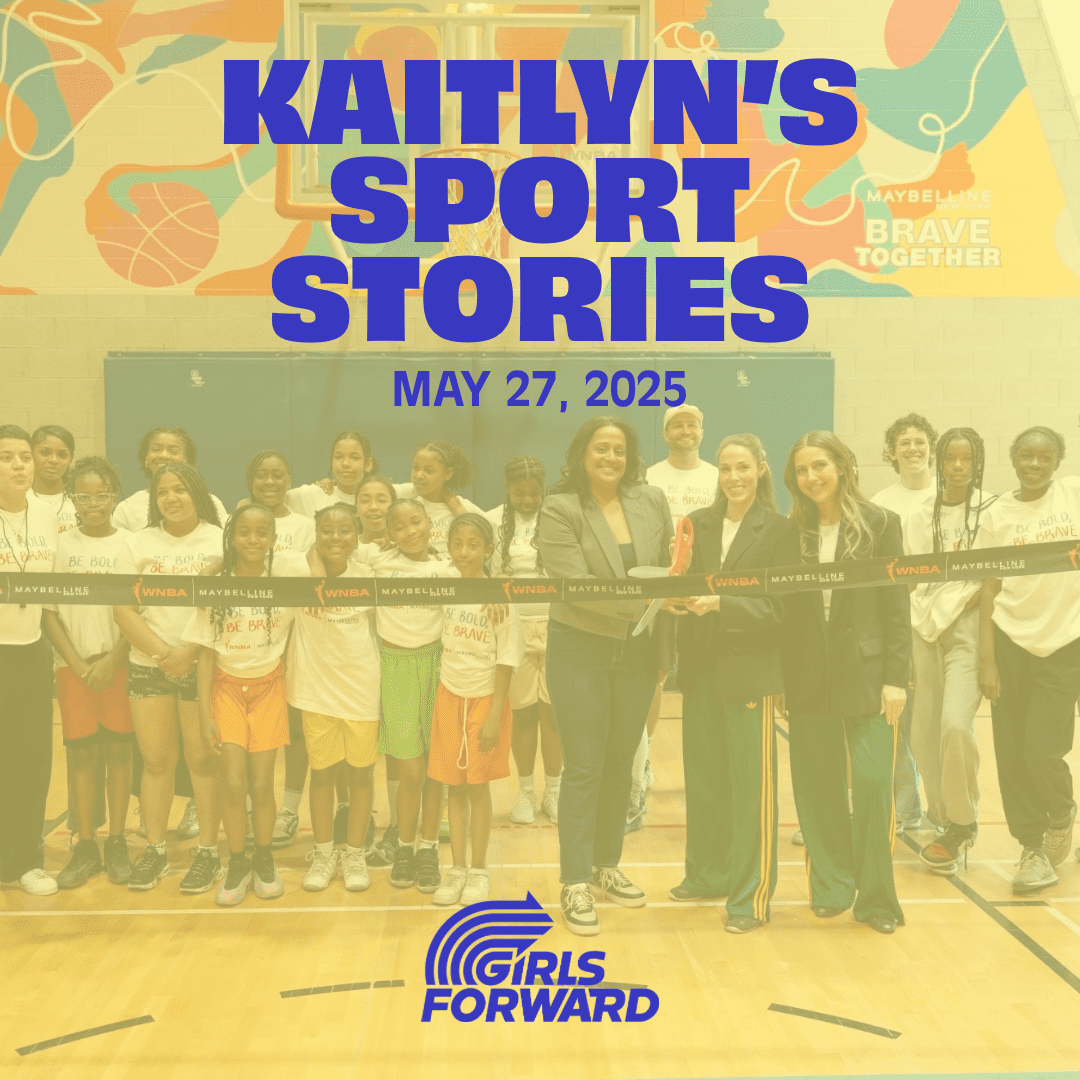In this edition, we catch up on the Toronto Tempo's in-person fan festival and the…
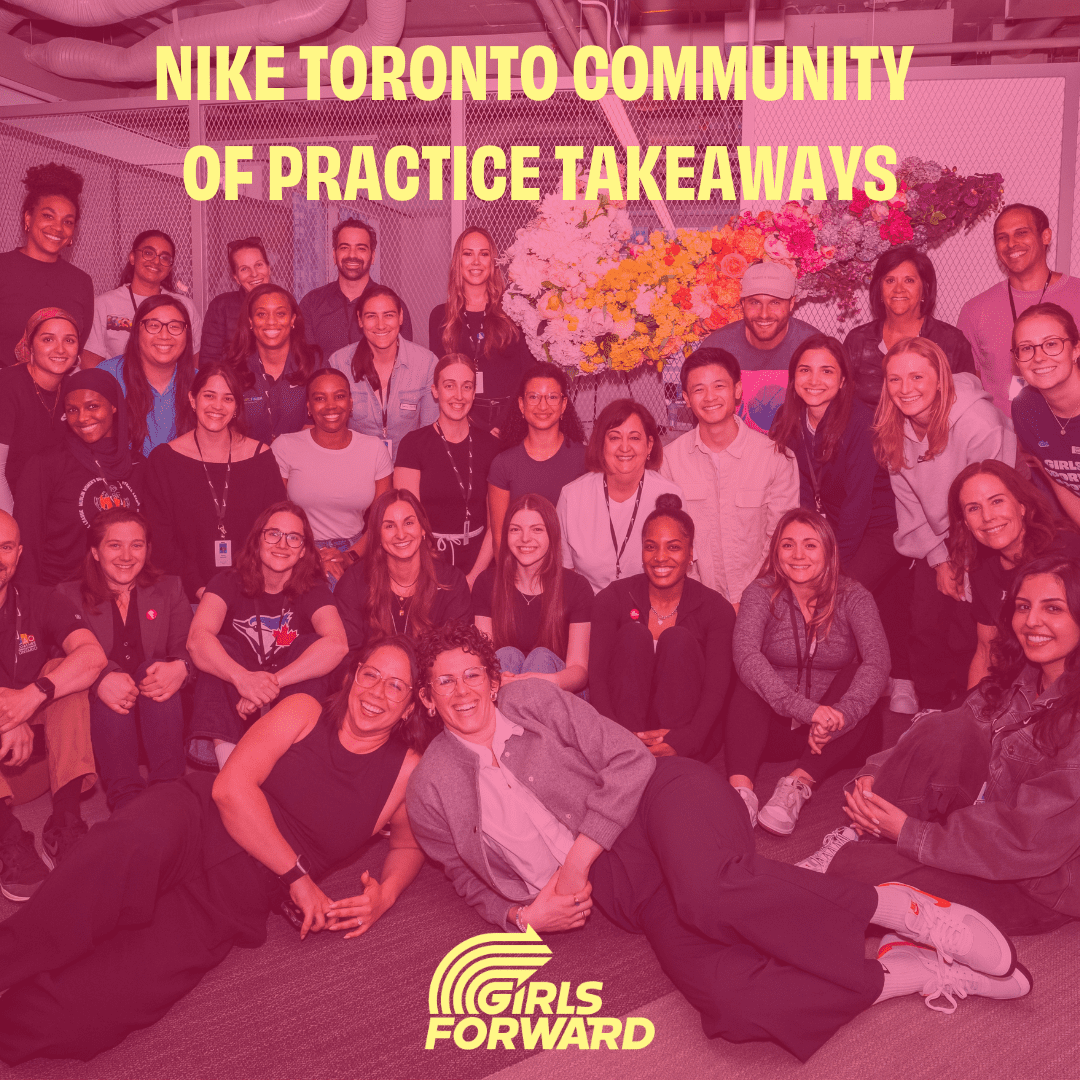
NIKE TORONTO COMMUNITY OF PRACTICE TAKEAWAYS
Organizations in attendance included: Buckets & Borders, Canada Basketball, Canadian Tire Jumpstart, Canadian Women & Sport, City of Toronto, Coaches Association of Ontario, Girls Forward Foundation, Hijabi Ballers, Jays Care Foundation, Lay-Up Youth Basketball, Muslim Women’s Summer Basketball League, Right to Play Canada, and Start2Finish.
During the Community of Practice, GFF hosted World Café Conversations with individuals from each organization.
World Café Conversations are an ongoing series of small conversations with changing groups so that everyone talks with everyone. This activity is oriented to creating an overall view of the community and their diverse needs and challenges.
The groups focused on the experiences of girls and women in sport, discussing the barriers they face and brainstormed support ideas across three key areas: coaching, the roles of organizations, and access & equity.
Here are the takeaways from those discussions.
COACHING
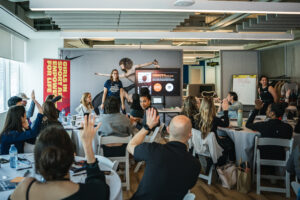
Barriers and Linked Support Ideas
- Barrier: Time commitment for women, especially due to domestic labour and child-tending responsibilities.
- Support Idea: Use coaching units or a team of volunteer coaches to reduce the individual time burden.
- Barrier: Lack of belief in themselves as coaches; limited representation and perceived experience.
- Support Idea: Actively recruit women, offer entry-level opportunities and beginner-friendly opportunities. Focus on empowerment.
- Barrier: Past negative experiences with women coaches.
- Support Idea: Mentorship programs to guide and support new coaches. Listen to coaches experience, follow up, and adapt accordingly.
Support Ideas (Standalone or General Concepts)
- Make coaching programs cost-free.
- Offer a variety of roles for adults to play (coach, official, liaison).
- Make athlete programs cost-free so they grow up to want to be coaches.
- Building organizational policies that support coaches.
- Provide honorariums, cover transportation, offer training support.
- Strengthen coach-parent relationships and set program expectations.
- Allow and promote sharing of resource to lower burden of capacity on female coaches.
- Humanize coaches. Show support and celebrate transformational work.
- Payment and promotion based on soft skills, not just years experience.
- Equip coaches better. Safe Sport modules are outdated, offer more trainings.
- Use open-ended and inclusive coach job descriptions. Encourage anyone to apply, regardless of traditional experience.
- Invest in coaches’ development. Support coaches to learn how to coach effectively, not just replicate how they were coaches.
- Redefine and clarify coaching pathways for girls. Create visible, realistic trajectories from athlete to coach.
ROLEs OF ORGANIZATIONS
Support Ideas (Standalone or General Concepts)
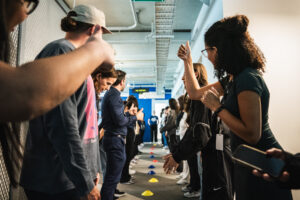
- Apply different lenses, such as trauma-informed approaches and empower community leaders.
- Encourage resource sharing.
- Prioritize consultation and partnership that includes users, participants, and the broader community.
- Use a localized approach tailored to specific needs and context of the community being served.
- Address bias and challenge assumptions.
- Focus on impact measurement, prioritizing qualitative experiences, retention rates, personal journeys (from player to coach), and storytelling.
- Work together and collaborate to fill gaps rather than working in silos.
- Create more opportunities for schools to promote and support community sport programs.
- Emphasize the value of collaboration so organizations can leverage one another’s strengths and resources, rather than duplicating efforts.
ACCESS & EQUITY
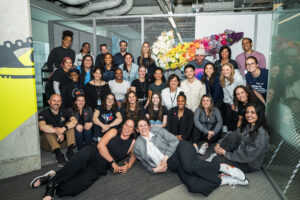
Barriers and Linked Support Ideas
- Barrier: Outdated stereotypes (e.g., “girls aren’t interested in sport”, “shrink it and pink it for it to work for girls”).
- Support Idea: Offer lots of opportunities to challenge the stereotypes. Build programming that fosters connection and belonging. Social engagement keeps girls involved.
- Barrier: For gyms, school permits require a staff member to be there = $$. While there are a huge number of gyms that sit dormant. There is more demand than supply for spaces. Some sports dominate shared spaces.
- Support Idea: Need new systems to unlock/access these gyms more affordably. They have space, we have programs. How can we better share resources?
- Barrier: No long-term funding so project funding runs out.
- Support Idea: Lobbying the government for more funding.
- Barrier: There can be a lack of data and research.
- Support Idea: Invest in collecting and sharing gender-based data to inform programming.
Support Ideas (Standalone or General Concepts)
- Girls only spaces.
- “Go to them” type approach, vs “come to us” approach.
- Understanding of different needs. Include consideration for cultural, social, physical, and emotional needs.
- Providing food as an incentive or necessity for participation.
- Proper equipment. Examples: Sports bras, hijabs, inclusive clothing options.
- Intersectional approach. Programming should be inclusive of girls from diverse identities and backgrounds.
- Innovative sport options.
-
- 3-on-3 formats.
- Modified games.
- Non-traditional sports.
Thank you to Nike Toronto for your continued partnership and for creating space for meaningful collaboration and knowledge-sharing. We’re also grateful to all the organizations who joined us, bringing curiosity, openness, and energy to important conversations about the current state and future of girls and women in sport across Canada.
